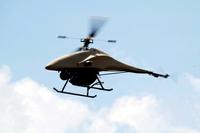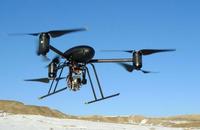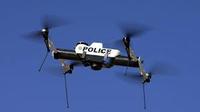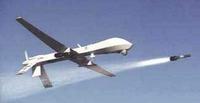-
Google’s assault on privacy: a reminder
A year ago, on 1 March 2012, Goggle launched its privacy-eroding policy of combining and collating users’ information across all of Goggle’s products. Google offers no opt-out option. Forcing consumers to share every aspect and nuance of their Internet practices with the company was not enough for Google. Yesterday, the attorney generals of thirty-eight states reached an agreement with Google concerning Google’s practice of spying on Wi-Fi users. The company sheepishly admitted that its Street View Vans collected 600GB of user data from unprotected Wi-Fi networks, and was fined a measly $7 million.
-
-
Facebook’s Likes expose intimate details, personality traits of millions
Research shows that intimate personal attributes can be predicted with high levels of accuracy from “traces” left by seemingly innocuous digital behavior, in this case Facebook Likes. Study raises important questions about personalized marketing and online privacy.
-
-
Enabling small ships to launch and retrieve long-endurance UAVs
About 98 percent of the world’s land area lies within 900 nautical miles of ocean coastlines. Enabling small ships to launch and retrieve long-endurance UAVs on demand would greatly expand the U.S. military’s situational awareness and ability quickly and flexibly to engage in hotspots over land or water. DARPA is seeking companies to develop these systems.
-
-
iPhones can reveal a lot about their owners to law enforcement
People assume their iPhones are safe to keep their personal information on. They would be dismayed to realize what law enforcement agencies can find about them on their phone.
-
-
Spotting and extracting relevant information from mountains of data
The term “Big Data” refers to a technology phenomenon that has arisen over the past thirty years. As computers have improved, growing storage and processing capacities have provided new and powerful ways to gain insight into the world by sifting through the infinite quantities of data available. This insight, discoverable in previously unseen patterns and trends within these phenomenally large data sets, can be hard to detect without new analytic tools that can comb through the information and highlight points of interest. Experts convene to address growing need for Big Data analysis tools.
-
-
Ohio country authorized to use drones to look for missing persons

The Medina County, Ohio, Sheriff’s Office has recently been authorized to fly drones on police missions. Tom Miller, the county’s new sheriff, said the drones will be used specifically for looking for missing people or suspect who may be hiding in the woods.
-
-
Problems-plagued border sensor program put on hold by CBP
Two years ago, DHS cancelled SBInet, the ambitious Bush-era project to install advanced sensing technology along the border. The project was cancelled after more than $1 billion were spent on a few towers equipped with sensors which were built along a 28-mile stretch and the Arizona-Mexico border. Now CBP has put on hold one of SBInet’s successors, a project aiming to install sophisticated ground sensors along the U.S.-Mexico border.
-
-
Seattle mayor says no to drones

Seattle mayor Mike McGinn has shut down the Seattle Police Department’s drone program before it started. McGinn said the police need to stay focused on “community building.” The announcement came just one day after the city held a public hearing to discuss restrictions to be imposed on drone use by the police departments. Many citizens voiced their concerns about possible violations of privacy.
-
-
DHS grant to fund technology for tracking mobile devices
The University Of Alabama at Birmingham(UAB) has been given a $583,000 grant from the Department of Homeland Securityto build a system for verifying the location history and chorological track of cell phones and smart phones, tablets, and other mobile devices. The system being built could also be used to eliminate contest fraud, verify the origin of sea food, and protect national security.
-
-
Florida restricts the use of drones by law enforcement agencies
States continue to restrict the use of drones by law enforcement agencies. Florida police agencies wanted state lawmakers to make a special exception in a bill which bans the use of UAVs by law enforcement, so that drones could be used for crowd control. The bill, however, won the approval of the Senate Community Affairs Committee without the exception.
-
-
DNA sequencing a serious risk to privacy
The growing ease of DNA sequencing has led to enormous advancements in the scientific field. Through extensive networked databases, researchers can access genetic information to gain valuable knowledge about causative and preventative factors for disease, and identify new targets for future treatments. The wider availability of such information, however, also has a significant downside — the risk of revealing personal information. New study finds that new policies are needed to safeguard participants’ identity in genetic studies.
-
-
More states consider laws to limit the use of drones by police

The Federal Aviation Administration (FAA) appears ready to allow the use of drones in the United States, by both law enforcement agencies and private citizens, almost with no restrictions. Experts predict that by the end of the decade, there will be about 30,000 drones flying over the United States. Legislators in at least eleven states want to impose limits on the use of UAVs as worries grow that the unregulated use of drones would erode the liberties of Americans.
-
-
Google wants to limit law enforcement’s access to e-mails, users’ information
In 2012 Google received 16,407 requests for user data, which affected 31,072 users or accounts. More than half of the requests were accompanied with a subpoena, the others were not. Google is planning on lobbying Washington this year to persuade lawmakers that they should make it harder for law enforcement to gain access to e-mails and other digital messages.
-
-
New Hampshire bill would limit searches, expand expectation of privacy

New Hampshire State Representative Neal Kurk ® says state residents do not expect,when they throw something out in their trash or leave a drinking glass with their saliva on it at a public place, that law enforcement, insurance companies, or data miners would use the trash left behind to glean personally identifiable information.
-
-
U.S. to build drone base in Niger

With the war in Mali raging, the U.S. Africa Command is now establishing a drone base in northwest Africa in order to bolster U.S. surveillance – and operational — capabilities against Islamist groups in the region. Initially, the drones flying from the base will conduct unarmed surveillance missions, but there is little doubt that if targets present themselves, these drones will be equipped with missiles and go on hunting-killing missions.
-
- All
- Regional
- Water
- Biometrics
- Borders/Immig
- Business
- Cybersecurity
- Detection
- Disasters
- Government
- Infrastructure
- International
- Public health
- Public Safety
- Communication interoperabillity
- Emergency services
- Emergency medical services
- Fire
- First response
- IEDs
- Law Enforcement
- Law Enforcement Technology
- Military technology
- Nonlethal weapons
- Nuclear weapons
- Personal protection equipment
- Police
- Notification /alert systems
- Situational awareness
- Weapons systems
- Sci-Tech
- Sector Reports
- Surveillance
- Transportation
Advertising & Marketing: advertise@newswirepubs.com
Editorial: editor@newswirepubs.com
General: info@newswirepubs.com
2010-2011 © News Wire Publications, LLC News Wire Publications, LLC
220 Old Country Road | Suite 200 | Mineola | New York | 11501
Permissions and Policies
Editorial: editor@newswirepubs.com
General: info@newswirepubs.com
2010-2011 © News Wire Publications, LLC News Wire Publications, LLC
220 Old Country Road | Suite 200 | Mineola | New York | 11501
Permissions and Policies
